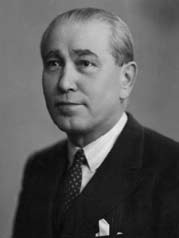Fethi_Okyar
Fethi Okyar
2nd Prime Minister of the Republic of Turkey from 1924 to 1925
Ali Fethi Okyar (29 April 1880 – 7 May 1943) was a Turkish diplomat and politician, who also served as a military officer and diplomat during the last decade of the Ottoman Empire. He was also the second Prime Minister of Turkey (1924–1925) and the second Speaker of the Turkish Parliament after Mustafa Kemal Atatürk.
You can help expand this article with text translated from the corresponding article in Turkish. (June 2023) Click [show] for important translation instructions.
|
